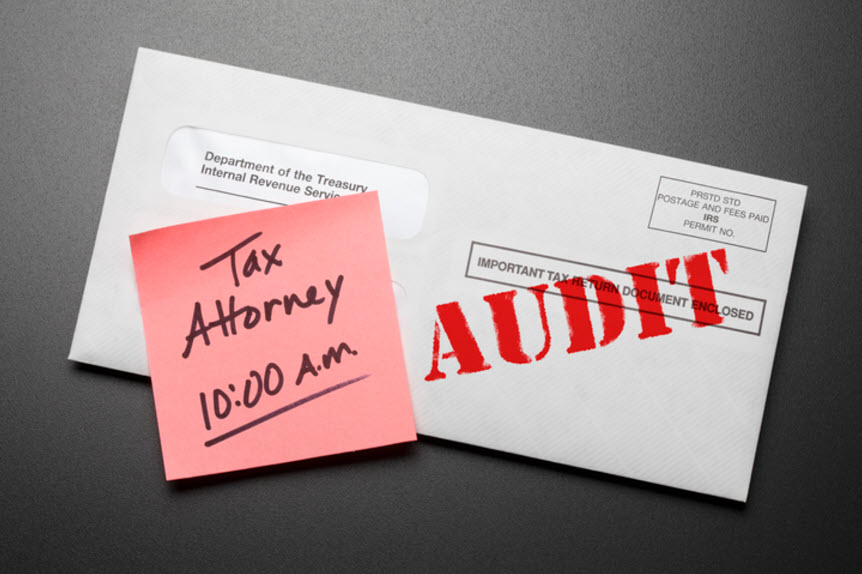
We are often asked how to prepare for an IRS audit. The first and most important thing to know is that speaking directly with the IRS is not in your best interest. IRS Revenue Officers (auditors) are skilled interrogators. They will ask you for information that may or may not be appropriate based on the extent and nature of the audit. The IRS knows US taxpayers provide far too much information in response to these requests. Taxpayers want to appear honest and cooperative. However, the IRS will use any and all information against the taxpayer to maximize the additional revenue generated during the IRS audit.
The IRS uses complex algorithms to identify potential audit targets, often based upon identified patterns within groups of known tax avoidance schemes. Generally speaking, the IRS has identified a reason to closely inspect your return, identify unreported or under-reported income, and spot the abuse of deductions or unsubstantiated expenses and credits.
You've probably received a letter from the IRS requesting specific information, records, or documents. The response to the IRS should include substantiating information and a thorough explanation in response to the IRS' questions. It is important to provide only the specific information requested by the IRS, and nothing more.
The second thing to know is every accounting, tax, or financial professional you have worked with in the past or might consider working with as you prepare for an IRS audit must provide any and all information they have about you to the IRS as well as any notes they have taken (including correspondence such as texts and emails) in response to an IRS subpoena or request for information. This includes Certified Public Accounts (CPAs), enrolled agents, financial advisors, and tax preparers.
This is why it is important to speak with a tax attorney if you are facing an IRS audit. The tax attorney can provide attorney-client privilege protections, an absolute brick wall to the IRS. Under this important legal protection, you can discuss your situation and all associated facts and figures in complete confidence. The attorney-client privilege is designed to allow you to have an open, candid conversation with your tax attorney without concern about your thoughts, information, or questions becoming the subject of IRS discovery tactics. The privilege does not protect criminal issues including money laundering.
If the scope of the IRS audit is limited and relatively low risk, your tax attorney can quickly guide you in the best strategies to efficiently prepare for an IRS audit. If the extent of your potential legal and financial exposure is significant, you will need the protections, guidance, and representation of the tax attorney to guard your interests and manage all communications and informational responses with the IRS while working to achieve the best possible outcome.
IRS audits often come up against the 3-year statute of limitations. The auditor may request an agreement to extend the audit beyond the statute of limitations, and it may or may not be in your interests to agree to the proposed extension. Your tax attorney should make this important decision based on the unique facts in your specific case.
Your tax attorney can also ensure all appropriate information is contained within the audit files before the final determination is reached. Once the audit is completed, an appeal is only available based on the information contained within the scope and documentation of the audit file.
Finally, the auditor's findings can be appealed. Do not sign the examination report if an appeal is planned or expected. Your tax attorney can often work to challenge the auditor's findings and reduce the amount determined by the audit's examination report.
The best way to prepare for an IRS audit is to seek a consultation with an experienced tax attorney. You may never have to speak to or communicate directly with the IRS during the audit process. Your tax attorney should handle all communications and work to ensure the IRS stays on track while limiting forays and fishing expeditions designed to expand the scope of your audit (and increase the amount of tax you would owe). Achieve the best possible outcome in your audit while enjoying peace of mind and reducing the stress of attempting to communicate and deal with the IRS yourself.